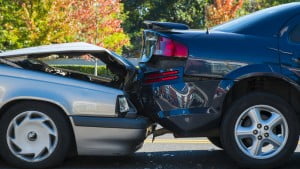A deadly car accident occurred on Wednesday when a personal automobile crashed right into a truck on course 40, killing humans. MDA forces that arrived at the scene first reported 3 injured, while humans in their 30s had been trapped inside the vehicle in a deadly circumstance. Another character was also wounded and handled by the forces.
Often, vehicle injuries occur so quickly and suddenly that you may be shaken up or even in shock. This anxiety can lead you to say matters that may critically damage your potential to acquire repayment for both asset harm and private accidents. After the twist of fate, you start thinking about whether you can have executed something to save yourself from the car smash. Human nature leads many people to consider anything they will have done to contribute to the twist of fate, even if, in reality, the coincidence became no longer their fault. However, a phrase of caution: DON’T make those types of statements to the police or insurance adjusters.
We are truly not advocating for what you lie. However, you shouldn’t always volunteer information that can, in truth, be inappropriate to the case. Suppose you volunteer this information to the Police. In that case, it will probably end up in the policy document, and these statistics WILL be used towards you to diminish or do away with repayment for your case, even though the records are inappropriate to the actual motive of the twist of fate. Likewise, an insurance claims professional (once in a while called an “adjuster”) will use this data in an attempt to shift blame, even supposing most effective in part, to you, and thereby decrease the value of your claim, if now not take away your recuperation all collectively. If you’ve got data that you believe did now not motivate the accident, however, it will be wrongly used against you. You definitely must talk it over with an experienced vehicle coincidence lawyer first.
Here are 4 examples of information that can or might not apply to your vehicle twist of fate case and that you shouldn’t volunteer to an officer or insurance adjuster: “I changed into on the phone.” Cell phone use is currently one of the pinnacle-riding distractions in Texas. If you mention that you had been on the telephone at the time of the accident to any coverage declare professional, they will most probably assume that you have been the cause of the car twist of fate and that, as a result, you do not deserve any repayment for your accidents. Instead of giving a biased insurance agent information regarding potentially inaccurate and beside-the-point statistics, permit the Police to use the facts to decide the genuine reason for the automobile coincidence without volunteering details.
“I am on a medicinal drug.” Perhaps you latterly started out a new prescription painkiller or tension medication. Maybe you took a cough syrup or a hypersensitive reaction pill before getting in the back of the wheel. In any event, a coverage agent will nearly actually try to use that fact against you, falsely accusing you of by some means contributing to the auto accident because you were underneath the have an effect on a drug. Again, you shouldn’t volunteer this information to law enforcement officials or insurance declares specialists.
“I became exhausted.” Fatigue is a commonplace hassle for drivers of every age and background. And, while it’s proper that sleepy drivers occasionally cause vehicle injuries, simply because you were tired would not routinely mean that you were the only one who made a driving mistake that precipitated the automobile crash. But, again, in almost every case, a coverage agent will hear that and make assumptions without understanding the statistics.
“My vehicle hasn’t been operating properly.” Whether you’ve been driving with a taillight out, your brakes are horrific, or that humorous noise simply might not end, automobiles require regular renovation. In a few cases, these issues may have contributed to the reason for an automobile twist of fate. If so, the Police will find out that during popular car protection, take a look at it to guess the same way insurance claims professionals might.
REMEMBER:
The insurance industry has one thousand million greenbacks, according to your industry. They do not make billions of bucks by paying out every claim across their desks. In reality, claims professionals are regularly incentivized, such as receiving bonuses and pay scale incentives, to deny or reduce the payout on claims. As such, a claims specialist will look for ANY and EVERY purpose to either deny your declaration or lessen the cost of your declaration. This is why you mustn’t volunteer doubtlessly unfavorable records to the Police, or the coverage claims professionals.


